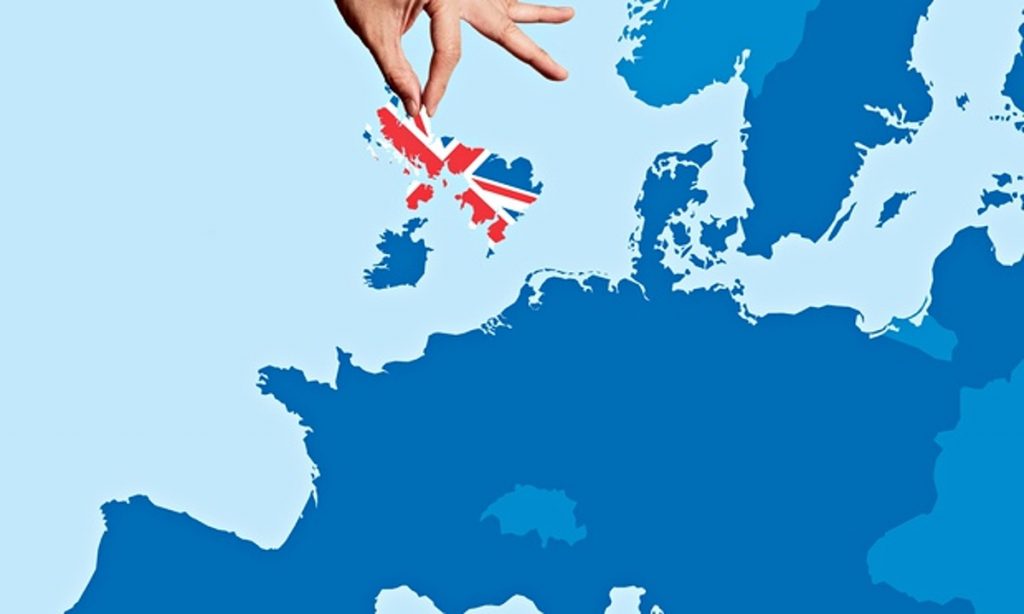(With acknowledgements to Private Eye for the “part 94” bit.)
Notwithstanding other major news topics – the tragic killings in Christchurch, NZ, the collapse into administration of Interserve, to name just two – it’s hard not to write about the continuing saga of the elephant in the room which has destroyed UK democracy.
But first a joke: we could certainly do with a bit of levity. Warning: this joke depends on knowledge of another joke.
Br*xit walks into a bar. The barman says: “Why the long, drawn-out farce?”
The straightforward answer, and not funny punchline, is a single word: incompetence. Incompetence, above all, by Theresa May and the Conservative party she “leads”. None other than Karl Marx wrote “History repeats itself, first as tragedy, second as farce.” We’re well into the farcical stage by now.
Options Good and Bad
With 13 days to go (as I write) before we reach the risk of crashing out of the EU, it’s time to lay my cards on the table about the options now open to the UK. In this post I consider both the withdrawal agreement (the easy bit which should have been agreed at least a year ago) and the type of relationship we want long-term with the EU in the future (the hard bit, not even started). The two tables below summarize my views: I explain my reasoning in the paragraphs that follow.
Withdrawal Agreement
| Option | Summary | Economy SMT | Reputation | Peace in NI | GB order |
| A | Remain in EU | 0 | -5 | 0 | -6 |
| B | “Soft” deal | -3 | -7 | -1 | -4 |
| C | May’s deal | -7 | -9 | -4 | -3 |
| D | No deal | -10 | -10 | -8 | -5 |
EU-UK Relationship
| Option | Summary | Economy MLT | Reputation | Peace in NI | GB order |
| A1 | Fully engaged | +1? | -2 | 0 | -3? |
| A2 | Semi-detached | 0 | -5 | -1 | -3? |
| BC3 | Trade agreement | -3 to -7 | -7 | -4 | -3 to -5 |
| D4 | WTO rules | -10 | -10 | -6 | -1 -> -8 |
Some words of explanation are needed for the above tables. Numeric scales range from -10 to +10 and are my views alone. Positive is good, negative bad. -10 = worst case imaginable. SMT/MLT = short to medium term / medium to long term. “GB order” = lack of civil unrest. Only some options in the first table are compatible with those in the second, e.g. D necessarily implies 4.
My reasoning is given below. In summary, my preference, in an “ideal” world would be Option A1. The chances of this happening are slim! A2 is the status quo. I would be prepared to compromise to Option B3 in the interests of trying to unite our fractured country; worse options would be wholly unacceptable.
Options A to D
Option A is clearly my first preference, but raises the issue of social order (see below). Option B approximates to Labour’s position, perhaps as modified by cross-party negotiations amongst backbenchers. This is looking less likely following the failure of Parliament, in its first attempt last week, to wrest control of the process from May. So much for the tolerable options.
And so to the intolerable ones, options C and D. Both would be economically damaging, D especially so: so much has been written on the economic effects that I will not add to the word count here. The other distinguishing feature between the first and second pairs is that of freedom of movement. Words are beyond me to understand how this concept has been come to be seen as a bad thing: it defies all logic. Sadly, logic plays very little part in this whole sorry business. In any event, we’ve never been part of the Schengen Agreement: we control our borders already, if we’re competent to.
Options 1 to 4
The optimist in me still looks forward to the day when the UK uses its many skills, talents and historical experience to play a full and constructive role in EU affairs, i.e. Option A1. Childish carping from the wings (for short-term, domestic political gain) has been indulged by Tory and Labour Party (Prime) Ministers for years: the mood music is all wrong. I am coming to the conclusion that I will not live to see this happy outcome.
What kind of trade deal (or none) – options BC3 or D4 – will depend on shenanigans in Westminster over the next two weeks. And of course, any extension to the timescale beyond 29th of this month requires consensus amongst the EU27. Speculation suggests realpolitik will win over Farage’s reported mischief-making in countries most likely to object. As my wife says, “We live in interesting times”.
Economy
My assessments about the impact on the economy are based on what I’ve read and understood over the past few years. Getting picked off in a trade deal by Trump’s USA as a vulnerable lone country will suit the few free trade lunatics, their US backers on the political far right and, for different reasons, by Putin’s Russia. Trump and Putin both see the EU as their major obstacle to imposing their authoritarian world view. Their useful idiots (who include Farage and those who have not taken the trouble to understand their true motives) need to be very careful what they wish for. Everyone else knows it’s the poorest and most vulnerable who will suffer most in the dismal small government, free trade dystopian scenario.
UK Reputation
The chaos and May’s mismanagement has already spectacularly damaged the UK’s reputation in Europe and worldwide: see, for example, this commentary in the Washington Post. Here’s a sample: “European negotiators in Brussels, accustomed to clever British diplomats, have been amazed by how ill-prepared the Brexiteers have been, how little they understood about Europe, about treaties, about trade. It will be a long time before they assume, as they once did, that Britain is a serious country to reckon with.”
I also hear that many news channels elsewhere in Europe and running “Look how stupid the Brits have been today” slots in their regular programming.
At best, it will take a couple of generations to rebuild the UK’s prior reputation; at worst, it’s gone forever. But our diminished status feeds back into future trade negotiations, making other countries even more wary ever to trust our government again to keep our word.
Northern Ireland and the Good Friday Agreement
And so, to the closest outpost of our former Empire, Northern Ireland.

It seems to have been standard practice, at least since 2010, to appoint an incompetent, ignorant nobody to the post of Northern Ireland Secretary in the UK Government. Karen Bradley completes a long list of such types, excelling herself by first revealing her ignorance of Northern Ireland’s politics last autumn and, more recently, making a crassly stupid remark about Bloody Sunday. Contrast this with the bravery of Mo Mowlam when she was in the post: her actions acted as a catalyst to the implementation of the Good Friday Agreement. The GFA has kept a fragile peace in place for twenty years.
There are many in the Tory Party who don’t give a damn about Irish affairs and would happily sacrifice the Good Friday Agreement (and possibly even peace in Ireland) for the delusions about the benefits of leaving the EU. May’s actions in signing a “confidence and supply” agreement with the DUP bigots to shore up her minority government will come to be seen as a key strategic mistake. The DUP are about as unrepresentative of the views of the people of Northern Ireland as it is possible to get (58% of the population voted Remain).
The insensitive actions of May and her badly appointed ministers have already threatened the fragile stability in the province. All but Option A, in my analysis, threaten something worse. It’s probable that exit from the EU will bring forward the date when Ireland is reunified (and possible it will hasten Scotland’s independence too – 65% Remain).
Civil Unrest in GB
Turning even closer to home, it’s obvious that the inhabitants of these islands are more divided and more angry than at any time I can remember for at least 40 years. So, what is the risk of civil unrest under each of the Options? I’ve given my best guess in the tables above. My risk score for Option D4 above shows two figures: I will explain. Giving the Leave extremists what they want would probably minimise the risk of short-term disorder. As reality dawns and the most disaffected will be those who suffer when the economy crashes, Option D4 carries the highest long-term risk of disorder and of opportunities for the extreme right.
I’ve made some “elitist” assumptions in deriving my risk scores. There’s ample evidence already of a thuggish minority of Leave extremists, egged on by far right politicians and lobbyists, who have already caused unrest on our streets. They will be (whipped up to be) incandescent with rage if we remain in the EU. I assume disaffected, disappointed Remainers will, by and large, express their views in a more civilised way. (Stereotypically, perhaps by protests outside Waitrose?)
This is a tricky issue. A government’s key priority, agreed by those on the left and right politically, is to maintain order. But democracy must not bend the knee to mob rule. We’ve already seen the murder of one MP too many, Jo Cox. It’s a tragedy that far too many politicians: all, I believe, on the political right, have used language designed only to inflame passions. May herself seems determined not to compromise. And all of this unnecessary: Cameron’s attempt to placate the lunatic fringe in his own party has led to a fracturing of society. How will it end? Nobody knows.
And Next?
The immediate future does not look bright. It seems that May is still talking to the DUP and ERG, trying to persuade them to support her deal when she brings it back to the Commons next week. Meantime, Labour and Tory backbench MPs are trying to find common ground for a compromise.
Perhaps things will look different in a week or two. But whether in a good way or a bad one, time will tell.


